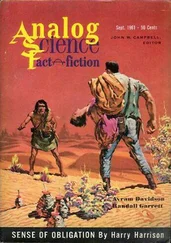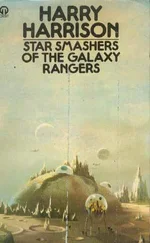They said: 'Has she-?'
They said: 'Dare we-?'
They said: 'Is she really going out with him?'
Seria Mau watched them for a moment, feeling as remote as space. Then she ordered:
'Cut me the cultivar you have always wanted me to have.'
The shadow operators could scarcely believe their ears. They grew the cultivar in a tank much like her own, in an off-the-shelf proteome called Tailors' Soup, customised with inorganic substrates, code neither human nor machine, pinches of alien DNA and live math. They dried it out and eyed it critically. 'You'll look very nice, dear,' they told it, 'if you just wipe the sleep from your blue eyes now. Very nice indeed.' They brought it to the room in which she kept the Dr Haends package.
' Here she is,' they said. 'Isn't she lovely? Isn't she charming?'
'I could have done without the dress,' said Seria Mau.
'Oh but dear: she had to wear something .'
It was herself, twelve years old. They had decorated her pale hands with spirals of tiny seed pearls, and turned her out in a floor-length frock of icy white satin sprigged with muslin bows and draped in cream lace. Her train was supported at each corner by hovering, perfect, baby boys. She stared shyly up at the cameras in the corners, whispering:
'What was relinquished returns.'
'I can do without that, too,' said Seria Mau.
'But you must have a voice, dear-'
She didn't have time to argue. Suddenly she wanted it all over with. 'Bridge me in,' she said.
They bridged her in. Under the impact of this, the cultivar lost psychomotor control and fell back against a bulkhead. 'Oh,' it whispered. It slid down on to the deck, staring puzzledly at its own hands. 'Am I me?' it asked. 'Don't you want me to be me?' It kept glancing up and then down again, wiping compulsively at its face. 'I'm not sure where I am,' it said, before it shivered once and got to its feet as Seria Mau Genlicher. 'Aah,' whispered the shadow operators. 'It's all too beautiful.' Deco uplighters introduced to the room a gradual pearly illumination, wavering yet triumphant; while rediscovered choral works by Janacek and Philip Glass filled the air itself. Seria Mau stared around. She felt no more 'alive' than she had in the tank. What had she been so frightened of? Bodies were not new to her, and besides, this one had never been her self.
'The air smells like nothing in here,' she said. 'It smells like nothing.'
The Dr Haends package lay on the floor in front of her, locked up in Uncle Zip's red and green beribboned box-which, she saw now, was a kind of metaphor for the actual mechanisms of confinement the gene-tailor had used. She studied the box for a moment, as if it might look different viewed from real human eyes, then knelt down and threw back its lid. Instantly, a creamy white foam began to spill out into the room. The Photographer (revisioned from five surviving notes on a corrupted optical storage disc by the 22nd-century composer Onotodo-Ra) faded to the muzak it so resembled. Over it, a gentle chime rang, and a woman's voice called:
'Dr Haends. Dr Haends to surgery, please.'
Meanwhile, though dead by his own definitions since the collision with Uncle Zip's K-ship, the commander of the Nastic vessel Touching the Void flickered in and out of view in one of the darkened corners of the room. He looked like a cage made of leaky insect legs, but while his ship remained, so did the burden of his responsibilities. Among these he included Seria Mau Genlicher. She had impressed him as capable of behaviour even more meaningless than most human beings. He had watched her kill her own people with a ferocity that betrayed real grief. But she was someone, he had decided early, who struggled harder with life than she needed to: this he respected, even admired. It was a Nastic quality. Because of it, he had been surprised to discover, he felt he owed her a duty of care; and he had been trying to discharge it since he died. He had done what he could to protect her from the Krishna Moire. More importantly, he had been trying to tell her what he knew.
He wasn't sure he could remember all of it. He had no clear idea, for instance, why he had been co-operating with Uncle Zip in the first place: though he guessed perhaps that Uncle Zip had promised to share Billy Anker's discovery with him. An entire planet of unmined K-tech! On the eve of another war with human beings, this certainly would have seemed an attractive offer. It must, however, have begun to seem less attractive after the attempt to retailor the Dr Haends package. Uncle Zip had met with little success. All he had done was wake up something which already lived inside it. What that was, neither he nor the Nastic tailors had any idea. It was something much more intelligent than any of its predecessors. It was self-aware in a way that might take years to comprehend. If it had once been what Uncle Zip claimed it to be-a package of measures powerful enough to undo safely the bridge between the operator and the code: a kind of reverse signing-up-it was no longer anything like that.
It was alive, and it was looking for other K-code to talk to.
'If it's faulty,' Seria Mau said, 'there's one way to find out.'
Still kneeling, she leaned forward and extended her arms, palms up. The shadow operators lifted the red and green box until it lay across her arms, then streamed away from her like fish in an aquarium, flickering agitatedly this way and that.
'Don't ask me if I know what I'm doing,' she warned them. 'Because I don't.'
She got to her feet, and with her train spilling out behind her, walked slowly towards the nearest wall.
Foam poured from the box.
'Dr Haends-' it said.
'Take us up,' said Seria Mau to the wall.
The wall opened. White light spilled out to meet her, and Seria Mau Genlicher carried the package up into navigational space, where she intended to do what she should have done all along, and introduce it to the ship's mathematics. The shadow operators, rendered suddenly thoughtful by this decision, went up after her as demure as lace. The wall closed behind them all.
The Nastic commander watched from his corner. He made one more attempt to attract her attention.
'Seria Mau Genlicher,' he whispered, 'you really must listen-'
But -rapt, dissociated, pixilated in the way only a human being can be with the vertigo of commitment-she gave no sign of having noticed him, and all that happened was that the shadow operators chivvied him away. They were worried he would become involved with the train of her dress. That would have spoiled everything.
I hate to feel so weak and useless, he thought.
Shortly after that, events on his own bridge intervened. Uncle Zip, puzzled by what was going on and suddenly growing suspicious, had him shot. A realtime vacuum commando unit, which had been hacking its way grimly through the Nastic ship since the collision, finally broke into the command-and-control section and hosed it out with hand-held gamma ray lasers. The walls melted and dripped. The computers went down. The commander felt himself fade. It was a feeling of intolerable weariness, sudden cold. For a nanosecond he hung in the balance, beguiled by a shard of memory, the tiniest part of a dream. The papery structures of his home, a drowsy buzzing sound, some complex gesture he had once loved, gone too quickly to be pinned down. Curiously enough, his last thought was not for that but for Seria Mau Genlicher, chained to her horrible ship yet still fighting to be human. He was amused to find himself thinking this.
After all, he reminded himself. She was the enemy.
Two hours later and a thousand kilometres away, shrouded in blue light from the signature displays in the: human quarters of El Rayo X, Uncle Zip the tailor sat on the three-legged wooden stool he had brought with him from Motel Splendido and tried to understand what was happening.
Читать дальше












